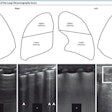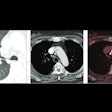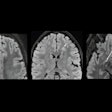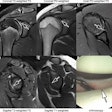Dear AuntMinnie Member,
October means football, pumpkin spice, and -- you guessed it -- the Minnies. The list of finalists was released this week, and our article about the final candidates was the top story of the past week on AuntMinnie.com.
There are now two candidates in each of the Minnies categories, with the winners to be selected by our panel of radiology luminaries. Final results will be released later this month, so stay tuned!
FDA clears photon-counting CT
It was called the biggest advance in CT instrumentation in the last decade by the U.S. Food and Drug Administration (FDA), an entity that's not often prone to hyperbole. "It" is photon-counting CT, and the FDA this week granted 510(k) clearance to the first photon-counting CT scanner.
Photon-counting CT differs from traditional CT in that the technology counts each individual x-ray photon passing through the patient. Proponents believe that photon-counting CT can produce more detailed images with lower radiation dose. This week's move by the FDA moves the technology closer to being used on a routine clinical basis.
In other news in CT, are radiologists regaining control of cardiac imaging from cardiologists? That's the implication of a new study released this week that found that the share of coronary CT angiography scans being performed in the U.S. over the last 10 years seems to be shifting away from cardiology offices and toward radiologists in hospitals.
And, researchers from China found that scores of disease severity in COVID-19 patients based on CT findings correlated well with lab tests, indicating that they could be an alternative to reverse transcription polymerase chain reaction (RT-PCR) testing.
Get these stories and more in our CT Community.
New PET tracer
Finally, visit our Molecular Imaging Community to learn about a new PET tracer based on gallium-68-labeled fibroblast activation protein inhibitors; researchers believe it could detect cancer twice as effectively as other radiopharmaceuticals.
Also check out a story on how PET found a link between risk of heart disease and post-traumatic stress disorder in Vietnam War veterans, and learn about how a new project in Australia could alleviate shortages of a key radioisotope used for cardiac imaging.
More news about molecular imaging is available in our Molecular Imaging Community.











